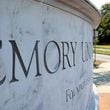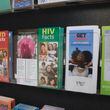Matthew Boedy, a University of North Georgia professor, talks about the purpose of college in a student's life and the role and relevance of the much-maligned English major.
This is a good column to share with high school students.
By Matthew Boedy
My sister has two children, a daughter in middle school and a son in ninth grade. And so she and her husband have begun to think about college. Not just paying for it, but what might their children be interested in, what they are good at – or more specifically, what their major will be so they can get a job.
And so a few weeks ago when she talked about where she saw them going to school, I listened as a brother but also as a professor at a booming university, with some good rankings.
Then as the professor brother that I am, for her birthday I bought my sister a book about college.
The book I gave her – Andrew Delbanco's College: What It Was, Is, and Should Be – is a few years old, but it is worth picking up a used copy like I did if you have kids prepping for college. Or if you are interested in a deeply persuasive short tome on higher education. You can read a New York Times review here.
Delbanco helps us re-think the purpose of college. He writes he has never come across a better answer to that question than a diary from a college student in 1850 that prayed to his God to “show me how to think and how to choose.”
Delbanco translates that into today’s more secular state this way: college should be “an aid to reflection, a place and process whereby young people take stock of their talents and passions and begin to sort out their lives in a way that is true to themselves and responsible to others.”
This assumes so many of our students have little idea who they are, what they want from life, and of course, what field of work they might be interested in.
Yet the public thinks or perhaps demands that students have at least that last part figured out when or even before they step on campus.
We professors know better.
Listen to Delbanco's colleague at Columbia, Mark Lilla, speaking to first year students in 2010: "Talking to my students, I have discovered that they're far less concerned with getting what they want than figuring out just what it is that's worth wanting."
What is worth wanting? A job is worth wanting. But a vocation is worth wanting more. Knowing how to write a business proposal is worth wanting. But knowing how to invent that business is worth wanting more.
It’s why I changed the syllabus of my first-year writing course to center on this singular question: how to think like a ____?
Students fill in the blank, usually with their majors. And I tell them I am not an expert in any of their fields, but I am an expert in one that undergirds them all: rhetoric. And so I make the case during the semester that as they explore their majors they are being persuaded how to think like a biologist, social worker, or marketer.
Rhetoric is the age-old skill of asking new questions – see my post on invention from July – and how to make good choices.
That just so happens to be the purpose of college from that 1850 student diary. Delbanco adds a bit of personal reflection, a kind of identity formation, as part of the college education process.
And what major is best suited for that kind of work? You guessed it: all of them, if done well. And by well, I mean if students connect humanities – the work and study of how we become better humans – to science, forcing a bit of H into STEM. (I dislike STEAM with A for the arts because “arts” is not part of an education; it is the glue of an education.)
That kind of education requires English classes.
Yet my sister asked in so many words, are there any English majors anymore? And if she is any indication of the readers of this blog, I think you ask the same question.
Yes, my field does not have the best public reputation for jobs and salaries. And yes, there has been a 20 percent decline in English majors since 2012.
But that is not the whole story.
First, as English professor Michael Bérubé argues, there is a crisis for the humanities and English by association, but only of a "crisis of legitimation," defined by "the constant parade of people, especially among humanists themselves, who continue to talk about enrollment declines in ways that are factually, stubbornly, determinedly wrong."
Second, as Inside Higher Ed notes in its coverage of a report about English majors back in July, departments of English are not wallowing in lack of attention. The report noted the "continuing intellectual vitality of the major, which has served historically as an incubator of new programs," and which has been "central to the intellectual and cultural life of our colleges and universities."
English departments are central to higher education not because we have so many majors, but because at most places our first-year courses are the courses that teach the most students.
And in those courses, my colleagues and I offer that 1850 prayer to students, updated for 2018. We offer students ways to understand and expand their interests, their minds, their dreams. We teach the foundations of college – how to read, how to write, and of course how to think.
Yet with that assumed “crisis” in the air, I know trying to talk about an English major to my niece and nephew (and their parents) may not happen without some changing of minds about the larger purpose of college.
So, I started with a book. Hopefully my sister reads it. She promised to get to it after she finished reading "Crazy Rich Asians." I wanted her to read my gift quickly so I suggested she just see the movie.







